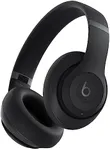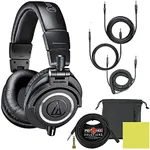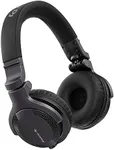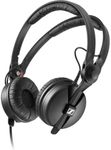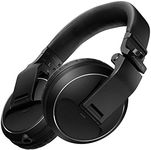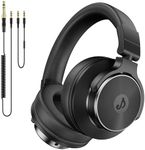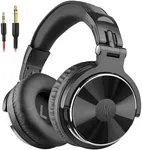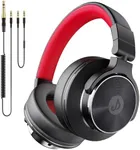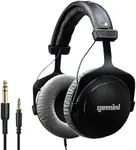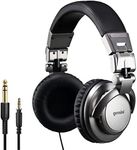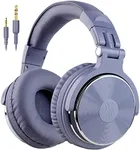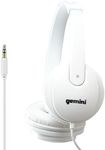Buying Guide for the Best Headphones For Djs
Choosing the right headphones for DJing is crucial as they are an essential tool for monitoring and mixing music. The right pair of headphones can make a significant difference in your performance, comfort, and overall experience. When selecting DJ headphones, consider factors such as sound quality, comfort, durability, and additional features that cater to your specific needs as a DJ. Here are some key specifications to consider and how to navigate them to find the best fit for you.Sound QualitySound quality is paramount for DJ headphones as it directly affects your ability to hear and mix tracks accurately. Look for headphones with a wide frequency range (20 Hz to 20 kHz is standard) to ensure you can hear both the deep bass and the high treble clearly. High-quality sound reproduction helps you detect subtle differences in tracks, making it easier to beatmatch and mix. If you play bass-heavy music, prioritize headphones with good bass response. For more balanced genres, look for headphones with a flat or neutral sound profile.
ComfortComfort is essential since DJs often wear headphones for extended periods. Look for headphones with cushioned ear pads and an adjustable headband to ensure a snug yet comfortable fit. Over-ear headphones tend to be more comfortable for long sessions compared to on-ear models. If you have the opportunity, try on different models to see which feels best on your head and ears. Remember, comfortable headphones will help you stay focused and reduce fatigue during your sets.
DurabilityDurability is important because DJ headphones need to withstand the rigors of frequent use and transport. Look for headphones made from high-quality materials such as metal or reinforced plastic. Features like a detachable cable can also enhance durability, as you can easily replace the cable if it gets damaged. Consider headphones with a foldable design for easier storage and transport. Durable headphones will save you money in the long run by reducing the need for frequent replacements.
Noise IsolationNoise isolation helps you focus on your music by blocking out external sounds, which is especially important in loud environments like clubs or parties. Closed-back headphones are generally better at isolating noise compared to open-back models. Look for headphones with good passive noise isolation, which is achieved through the design and materials of the ear cups. If you often DJ in noisy settings, prioritize headphones with excellent noise isolation to ensure you can hear your mix clearly.
PortabilityPortability is a key consideration for DJs who travel frequently. Look for headphones that are lightweight and have a foldable design, making them easy to pack and carry. Some models come with a carrying case, which adds an extra layer of protection during transport. If you’re a mobile DJ or often perform at different venues, portable headphones will make your life easier by being more convenient to transport.
Swiveling Ear CupsSwiveling ear cups are a useful feature for DJs as they allow you to monitor the music with one ear while keeping the other ear free to hear the crowd or other external sounds. This feature is particularly helpful for beatmatching and cueing tracks. Look for headphones with ear cups that can swivel 90 degrees or more. If you frequently use this technique, prioritize headphones with flexible and easily adjustable ear cups.
Cable Length and TypeThe cable length and type can affect your mobility and convenience while DJing. A coiled cable can extend and retract, providing flexibility without getting tangled, while a straight cable offers consistent length. Some headphones come with both types of cables, allowing you to choose based on your preference. Consider the length of the cable as well; a longer cable can give you more freedom to move around, but it should not be so long that it becomes cumbersome. Choose a cable type and length that suits your DJing style and setup.

